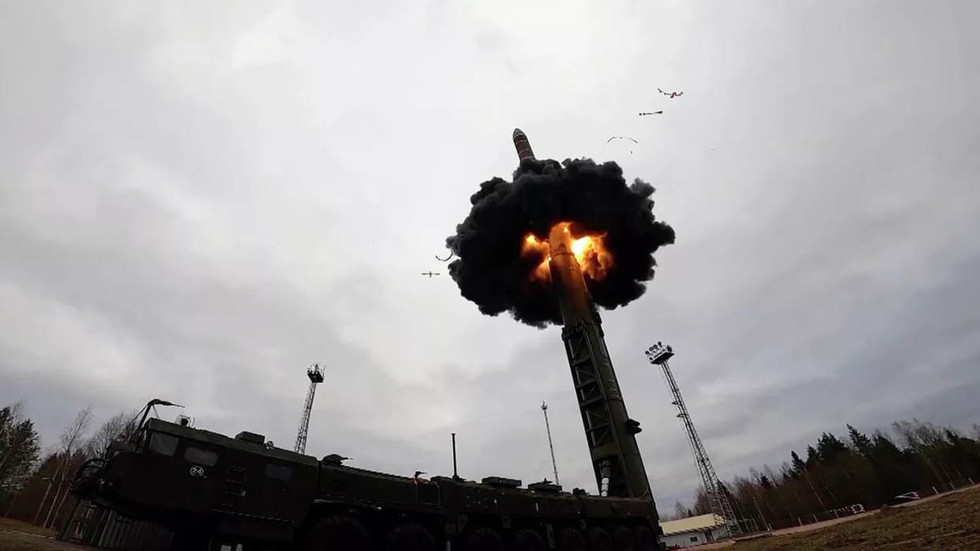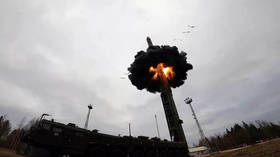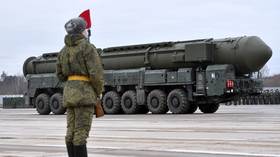
The exercises included ballistic and cruise missile launches by all components of the triad, the Kremlin has said

FILE PHOTO: The Yars ballistic rocket is launched during the strategic deterrence force drills, in Russia. © Russian Ministry of Defense
Russia has conducted a major exercise aimed at testing its strategic nuclear forces, the Kremlin said on Wednesday. The drills involved all three components of the nuclear triad: intercontinental ballistic missiles, nuclear-armed submarines, and strategic bombers, the statement said.
The test also aimed to evaluate the readiness of the military leadership, and its ability to command the strategic nuclear forces, the Kremlin said. All forces involved “followed through” with their tasks, it added.
The exercise involved launching Russia’s state-of-the-art Yars intercontinental ballistic missile from the Plesetsk Cosmodrome in the country’s north. The missile successfully hit its target at the Kura Missile Test Range, on the Kamchatka Peninsula in Russia’s far east, more than 5,700 kilometers from the launch site.
Russia’s ‘Tula’ nuclear-powered submarine successfully launched a ‘Sineva’ ballistic missile from the Barents Sea, just north of the Arkhangelsk Region, the statement said. Tu-95 strategic nuclear bombers also launched several nuclear-capable cruise missiles, it added.

Read more
The drills were personally overseen by Russian President Vladimir Putin, and partly coordinated by the Russian National Defense Operations Center in Moscow.
The exercise was conducted as Russia moves closer to withdrawing its commitment not to conduct nuclear tests. On Tuesday, the Russian Federation Council – the upper house of the national parliament – approved a bill that would withdraw Russian ratification of a treaty banning such tests. The Russian State Duma, the lower house, had previously passed the legislation.
Ratified by Russia in 2000, the 1996 Comprehensive Nuclear-Test-Ban Treaty (CTBT) has not yet come into force, since its terms require ratification by a set of nations, including the US. Moscow previously explained its decision to withdraw from the agreement by pointing to the position of Washington, which had not ratified the treaty but “deems it appropriate to lecture the signatories.”
Moscow has also vowed to refrain from conducting nuclear tests even after the legal obligations are removed, unless the US does so first.




